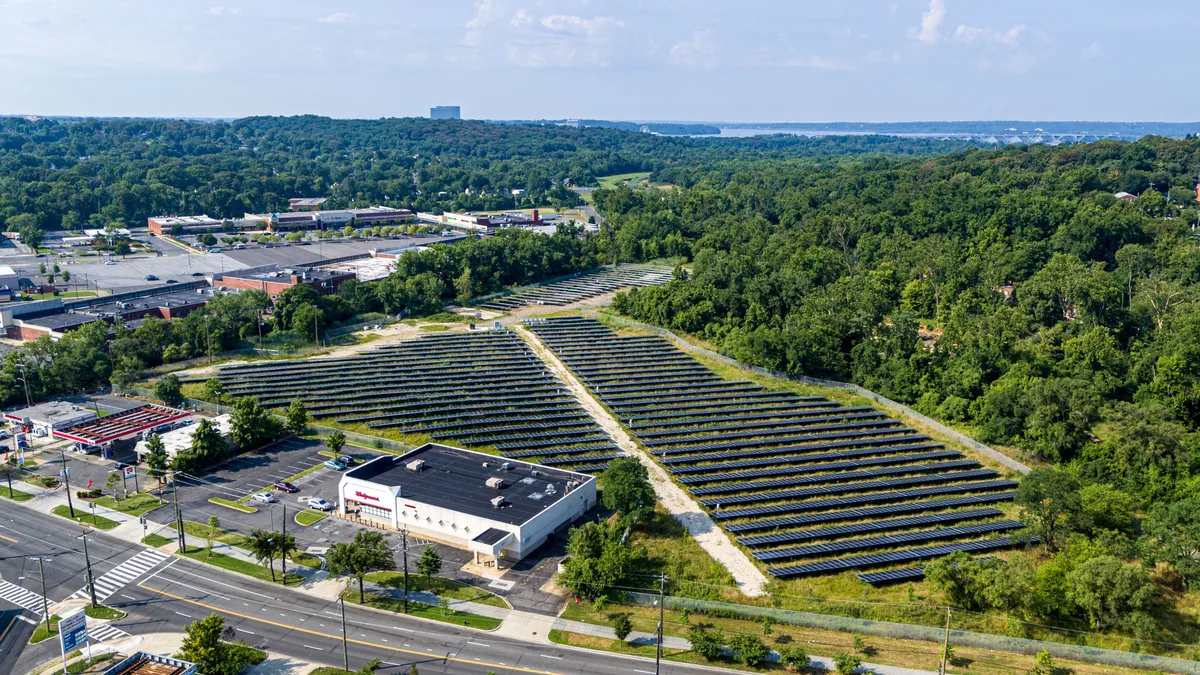Around the United States and worldwide, governments and companies are setting ambitious clean energy and decarbonization goals. According to the Clean Energy States Alliance, 18 states plus Washington, D.C., and Puerto Rico have 100% clean energy mandates or goals. At the federal level, the Biden Administration set a target to reduce economy-wide greenhouse gas emissions by 50-52% by 2030 and create a carbon-free electric grid by 2035.
It's not just government policymakers setting bold clean energy targets. More than 300 global corporations, including household names like Apple, 3M, General Motors and Anheuser-Busch, have all joined the RE100 initiative, in which companies commit to meeting a 100% renewable energy target.
In many ways, these aggressive objectives are a natural response to the daunting challenges the entire world faces in attempting to limit and effectively respond to the dire impacts of a warming world. This past August's release of the United Nation's Intergovernmental Panel on Climate Change (IPCC) was a stark reminder of the need for transformative and rapid change to avoid the worst effects of climate change. UN Secretary-General Antonio Guterres' description of the report's findings as a "code red for humanity" could not have been less ambiguous about the need for fast action.
Sharing lessons from D.C.'s progress and charting its future path
Setting ambitious clean energy and decarbonization goals is an essential step in tackling climate change. While critical for establishing a direction and foundation for policymaking, regulatory activities and investments, setting the targets is arguably the easiest task. Determining and implementing the specific programs, regulatory frameworks, incentives and technologies that can drive cost-effective and equitable clean energy deployments and economy-wide decarbonization are both complex and extraordinarily important.
A deep dive into the many issues, challenges and opportunities involved in achieving Washington, D.C.'s renewable energy and climate goals is on the agenda at the upcoming "Clean Energy Summit: Path to Decarbonization." The free hybrid event on September 28 will be hosted by Public Service Commission of the District of Columbia (DCPSC) Chairman Willie L. Phillips.
While the event, which will feature federal, state and city policymakers and regulators as well as utility and renewable energy leaders, including FERC Chairman Richard Glick, will focus on challenges and opportunities unique to the District, the keynote addresses and discussions will apply to anybody playing a role in creating a clean energy future. Indeed, the city's leadership and experience in forging policies, programs and strategies to drive decarbonization provide a model and lessons for other jurisdictions pursuing similar goals. For example, the District's Renewable Energy Portfolio Standard (RPS) mandates the District to achieve 100% clean energy by 2032 and to get 10% of its electricity from solar generating facilities around the city by 2041. Already, the DCPSC has certified more than 8,000 individual solar and community renewable energy facilities totaling more than 130 megawatts.
Challenges and opportunities to achieve equitable and cost-effective decarbonization
At the Clean Energy Summit, attendees and speakers will discuss promising pathways to build on D.C.'s progress. For instance, at the session, "To 2032 and Beyond! How Will D.C. Reach Its Ambitious Clean Energy Goals?" panelists from D.C. government agencies, as well as renewable energy CEOs from New Columbia Solar and Volt Energy and the D.C. Green Bank will share lessons about what has worked well to increase clean energy installations as well as the infrastructure and other last-mile challenges that need to be overcome to achieve D.C.'s goals.
Ensuring that these goals are achieved in a way that benefits all D.C. residents will be a topic in the session, "Electrification, Equity and Cost-Effectiveness: What Does The Pathway To Decarbonization Look Like?" D.C's Office of the People's Counsel (OPC) has made it clear that any climate change solutions must deliver equity, reliability and safety to all District residents. Panelists from the Electric Power Research Institute (EPRI), Exelon Utilities, American Gas Association and the Sierra Club will discuss how electrification, in particular, can simultaneously drive down emissions in transportation and industry while also promoting equity and fairness.
Using D.C. as an example, Paul Kjellander, the president of the National Association of Regulatory Utility Commissions, will lead a discussion important to the city, state, regional and federal decision-makers involved in achieving clean energy goals. This session, "Who's the Boss? Navigating the Federal and Regional Context to Meet State Clean Energy Goals," will feature regulators from Illinois, New York, Maryland, Pennsylvania and Washington, D.C., as well as Manu Asthana, the president and CEO of PJM Interconnection, the regional grid operator. Participants will discuss how federal policies and regional market rules impact state goals.
DCPSC Chairman Phillips will be joined by Jeff Marootian, a special assistant to the President for climate and science at The White House, to wrap up the summit. Also offering final thoughts virtually will be Kelly Speakes-Backman, Acting Assistant Secretary, U.S. Department of Energy and Dr. Cecelia Martinez, senior director for environmental justice for The White House Council on Environmental Quality.
While the discussions at the summit will cover a lot of ground and be understandably D.C.-specific at times, the varied lineup of speakers indicates the unprecedented level of cooperation and collaboration required for not only D.C. but all states to accelerate the deep decarbonization the world needs. The summit is an opportunity to foster that vital collaboration.










